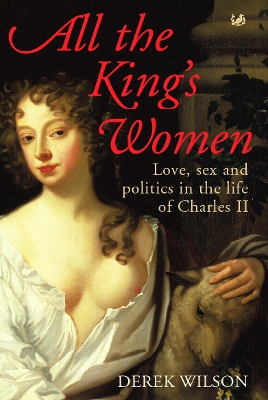
elysium
Written on Apr 27, 2012
The book focused too much on just Charles's life and not in the women and I started to nod off. I don't know why but something in Charles always has that effect.

Bookhype may earn a small commission from qualifying purchases. Full disclosure.
The image of Charles II as a randy monarch who dragged the crown through the moral mire and irredeemably weakened its position has persisted throughout the three centuries since John Evelyn gave his judgement. That judgement, Derek Wilson argues, is okay as far as it goes. The Restoration court did set an example of cynical libertinism that provoked opposition not only from outraged preachers, but also satirical journalists and angry mobs who pelted royal mistresses and burned down brothels. But Charles' bedroom antics are symptoms and not causes of social decadence. Why did Pepys complain 'there is nothing almost but bawdry at court from top to bottom' or Bishop Burnet observe that throughout the three kingdoms people were 'throwing off the very professions of virtue and piety'? The answers must be sought in the traumatic upheaval of the Civil War and its aftermath in the life of Charles Stuart and his people. In a society that was shaken loose by violent conflict the position of women changed radically. Many experienced a new freedom and an enhanced power to influence men and events. Charles grew up with and actually enjoyed the company of strong women. Ministers complained of his 'effeminate conversation'. As well as the notorious, grasping mistresses - the leach-like Lady Castlemaine, 'dearest Fubs' K-roualle, the outrageous Nell Gwynn - Charles was influenced by his domineering mother, Henrietta Maria, his 'pushy' nurse, Christabella Wyndham, his much-loved sisters, Mary and 'Minette', his only great love, Lucy Walter, his long-suffering wife, Catherine of Braganza and a cavalcade of devoted royalist ladies, actresses, whores, and ambitious gold-diggers who surrounded him throughout his exile and after his restoration. It is this miscellany of relationships that Derek Wilson explores and helps us to understand in All the King's Women. These relationships helped to form Charles II's character, shape the course of political events and, ultimately, seal the fate of the dynasty.
